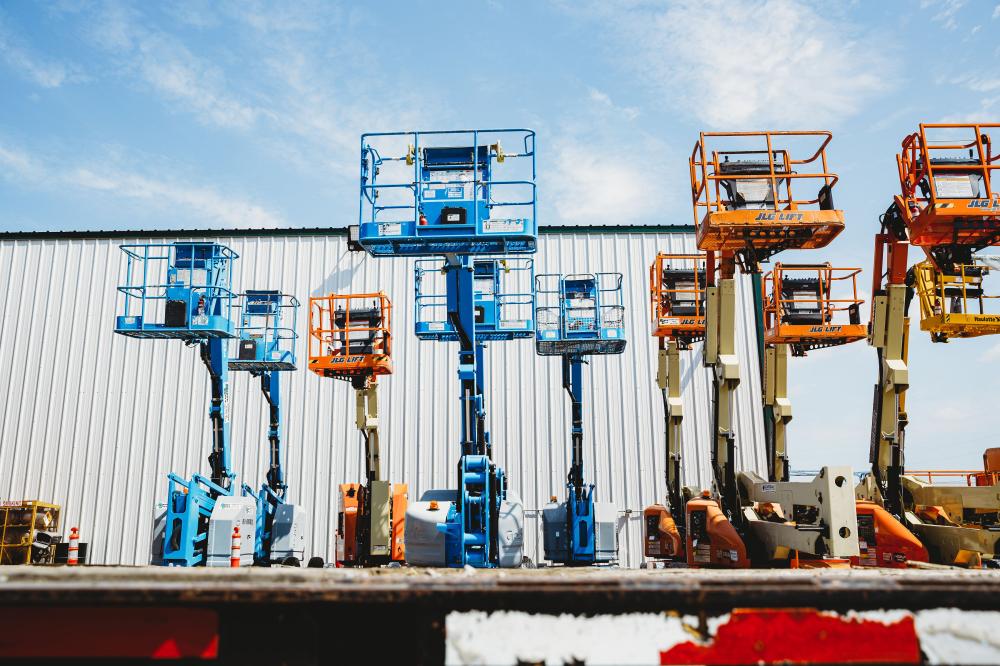The Tactical Advantages of Finding Equipment Rental Over Acquisition for Short-Term Projects and Quickly Altering Needs
In today's busy business setting, the decision to rent out instead of acquisition tools can significantly affect task results. By going with rental services, companies can decrease funding expenditures, simplify resource appropriation, and maintain a competitive edge with accessibility to innovative technology. This strategy not just alleviates the problem of maintenance yet additionally boosts functional adaptability, allowing business to swiftly adapt to progressing task needs. However, the implications of this method prolong past plain price savings, raising essential factors to consider for lasting functional efficiency and strategic preparation. What elements should companies evaluate when navigating this option?
Price Effectiveness of Devices Rental
When examining the cost effectiveness of devices rental, one should think about several vital aspects that can considerably influence total task expenditures. The initial financial investment connected with buying devices can be substantial, typically calling for a hefty capital expense that might not be reasonable for short-term projects. In contrast, tools rental allows companies to gain access to high-quality equipment without the burden of upfront costs, therefore maintaining resources for various other critical areas of the job.
Furthermore, recurring repair and maintenance expenditures are usually the obligation of the rental firm. This relieves the monetary stress on project managers, as they are not responsible for the prices associated with devices maintenance. Additionally, rental arrangements often consist of insurance policy coverage, mitigating dangers connected to harm or loss.
One more aspect to take into consideration is depreciation. Possession requires a gradual decrease in property value, which can dramatically influence the total expense of ownership over time. Conversely, renting devices removes problems regarding depreciation, as expenses are incurred just throughout of use.

Flexibility in Project Administration
Flexibility in task management is an essential advantage that equipment rental supplies, particularly for short-term projects. The vibrant nature of task timelines and needs usually requires fast modifications. By renting out equipment, project supervisors can quickly scale resources up or down based on instant requirements without the concern of long-lasting commitments related to ownership.
This adaptability enables teams to react promptly to unforeseen challenges, such as adjustments in task scope or hold-ups in distribution schedules. If a project demands particular machinery for a limited period, renting out allows business to acquire the required equipment without sustaining the high costs tied to acquiring. It assists in the capability to pivot quickly, enabling job supervisors to designate funds and sources a lot more effectively.
Additionally, tools rental fosters collaboration among different stakeholders, as it simplifies the process of getting specialized devices that might only be required temporarily (scissor lift rental). This adaptability not only improves task end results yet additionally supports a society of innovation, where teams can trying out different methods and technologies without the concern of squandered funding. Eventually, equipment rental works as a strategic asset in managing short-term tasks effectively
Accessibility to the most recent Innovation
Gaining accessibility to the newest innovation is a substantial advantage of equipment rental, especially for short-term projects. In sectors where developments in modern technology happen swiftly, having one of the most current tools can be a crucial variable in keeping an one-upmanship. Rental companies often buy the most recent machinery and tools, guaranteeing that customers can use modern innovation without the considerable funding investment required for purchasing.
This access enables companies to complete tasks much more successfully and effectively, leveraging developments that enhance performance, safety and security, and top quality. Advanced devices may include functions such as improved automation, boosted power efficiency, and exceptional ergonomics, all of which can contribute to far better job end results. When job demands shift or new technological remedies end up being offered, rental alternatives enable business to rapidly adapt without the problem of owning outdated tools.
Decreased Upkeep Duties
Accessing sophisticated technology with devices leasing not just enhances job effectiveness but additionally relieves the burden of maintenance responsibilities. When organizations choose for rental over acquisition, they effectively move the maintenance commitments to the rental provider. This arrangement eliminates the requirement for in-house maintenance groups, decreasing labor aerial lift rental prices and liberating beneficial sources that can be rerouted toward core service tasks.
Additionally, rental firms commonly make certain that their equipment is well-kept, on a regular basis serviced, and updated with the current security standards. This not just ensures optimum efficiency however likewise reduces the risk of unexpected failures that can lead to job hold-ups. Customers gain from the guarantee that the equipment they are utilizing is in peak problem, consequently improving performance and task timelines.
.png)
Boosted Operational Dexterity

Renting out equipment allows organizations to scale operations up or down rapidly, responding successfully to varying needs. This versatility is especially essential for markets facing fast modifications, such as building and construction, manufacturing, and occasions administration. forklift rental. As opposed to being overloaded by excess supply or outdated tools, business can choose the precise devices required for a particular job, optimizing their resource allocation
In addition, rental contracts commonly feature extensive support solutions, including upkeep and logistics, which additionally enhance functional effectiveness. This alleviates the burden on interior teams, permitting them to focus on core proficiencies as opposed to equipment administration. Eventually, by accepting tools leasing, companies position themselves to stay competitive, nimble, and responsive in an ever-evolving company landscape, cultivating innovation and growth.
Final Thought
In final thought, the strategic benefits of tools rental for short-term projects and rapidly altering demands are clear. Ultimately, embracing equipment rental fosters dexterity and competition in vibrant markets, positioning organizations for success in an increasingly busy environment.